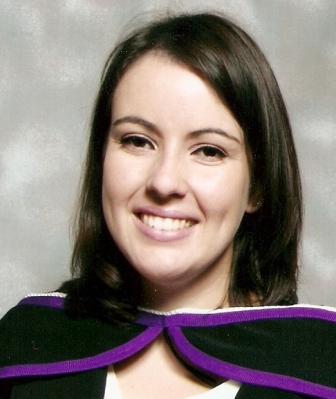
Lee-Anne Bruce, a member of the star-studded Linguistics Honours class of 2010, has won a Commonwealth Scholarship to study for her Master's degree at Lancaster University in England. Ian Siebörger caught up with Lee-Anne and asked her some questions about her scholarship, her new course and what excites her about this fantastic opportunity.
Ian: What type of criteria did you have to fulfil to win your Commonwealth Scholarship?
Lee-Anne: Well, the primary requirement of the award is academic merit, but the Commonwealth Scholarships Commission also takes into consideration two other very important criteria when it comes to the research aspect of the chosen course of study. These are: the quality of the research proposal, as well as the potential impact of the research on the development of a candidate’s home country.
Ian: What course of study have you been accepted to take at Lancaster, and why did you choose that particular course?
Lee-Anne: I have chosen to undertake a taught MA in Language Studies at Lancaster University’s Department of Linguistics and English Language. At Rhodes, I think we were very privileged to receive a well-rounded education in Linguistics, with a focus on both macro- and microlinguistics. This is something that I am extremely grateful for because my interests are captured by vastly different areas of linguistics such as Phonetics and Phonology as well as Language Acquisition and Language and Gender. I would love to complete a Master's degree that allows me to continue my studies in these areas.
Ian: What sort of topic would you like to research for your Master's?
Lee-Anne: As I am completing a taught Master's degree, the research aspect of the course corresponds to a 12 000-word dissertation in which I would like to focus on issues in language and gender. I believe language has a major role to play in the construction of gender and identity. An explanation into how language, personal identity and social context relate would begin to uncover how interaction sustains unequal gender relations in our society.
Ian: Why did you decide to go to Lancaster University?
Lee-Anne: Lancaster University has been consistently ranked among the top ten universities in the United Kingdom and has, I believe, one of the most balanced and interesting taught Master's courses – with modules ranging from Pedagogical Grammar, Pragmatics, and Research Methodology to Sociolinguistics, Second Language Acquisition and Corpus Linguistics. In addition, it boasts an amazing teaching staff with a great deal of experience in these areas.
Ian: When do you leave to start your new degree?
Lee-Anne: Courses at Lancaster begin on the 7th of October.
Ian: What are you most looking forward to about doing your MA at Lancaster?
Lee-Anne: While I am glad that I took a break from studying at the beginning of the year and have managed to get some work experience, I am really looking forward to being challenged by my Master's course. I definitely miss interacting with linguists and sharing ideas about linguistics, and I hope my new courses will be stimulating and interesting. I am also very excited about going to a different (slightly colder) country and meeting the staff at the department, including Paul Baker, Jane Sunderland, Ruth Wodak and Mark Sebba.
Lee-Anne is the second graduate from the Rhodes Linguistics class of 2010 to win a big scholarship to study in England. The first was Cathleen O'Grady, whose plans you can read about here. We'd like to wish both of them all the best for their adventures.
